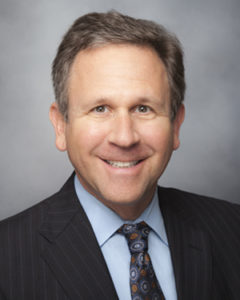Nolan Chang, MD, shares ways Kaiser Permanente is using AI to better the patient experience and reduce physician burnout.
Multidisciplinary, Team-based Approach to Care an Answer for Common, Rare Conditions

Dr. Isaacs discusses Kaiser Permanente’s integrated model and patient-centered approach to health care that connects multidisciplinary care teams who work in collaboration to deliver superior clinical outcomes for patients. (Dr. Isaacs also serves as the executive director and CEO of The Permanente Medical Group in Northern California and president and CEO of Mid-Atlantic Permanente Medical Group in Maryland.)
Kaiser Permanente and its physician-led medical groups have been delivering coordinated, value-based care for over 70 years. Via teledermatology, for example, primary care doctors conduct real-time virtual consults with their dermatologist colleagues through use of photo and video to improve the accuracy of diagnoses while saving time for patients and families.
You are recognized and rewarded for keeping people healthy.
– Richard Isaacs, MD, FACS, co-CEO of The Permanente Federation
This extends beyond common conditions as well. For example, a patient with head or neck cancer in a fee-for-service system would have to see a number of specialists over the course of many appointments.
At Kaiser Permanente in Northern California, cancer treatment plans are developed by a multidisciplinary team that participates in a weekly, technology-enabled head-and-neck cancer case conference. Participating clinicians can hear presentations and view scans and pathology slides virtually. The objective of the case conferences is to get multiple perspectives from physicians in different specialties—at one time in a coordinated and efficient way—so that the patient can have the best treatment plan.
“Every physician is working with a team, supported by technology, and armed with a broad array of experts,” says Dr. Isaacs. “Our medical groups are aligned with our hospitals and health plan around a common purpose, founded on prepayment, keeping our patients healthy and ensuring the best outcomes when they are sick.”


